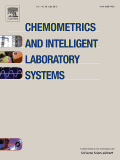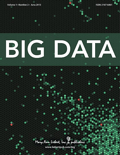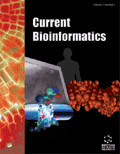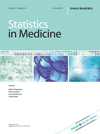
Annual Review of Biomedical Data Science
Scope & Guideline
Exploring the Frontiers of Biomedical Research
Introduction
Aims and Scopes
- Data Integration and Analysis:
The journal emphasizes methodologies for integrating diverse data types, including genomic, proteomic, and clinical data, to derive meaningful insights in biomedical research. - Artificial Intelligence and Machine Learning Applications:
There is a strong focus on the application of AI and machine learning techniques in biomedical contexts, exploring their role in predictive modeling, diagnostics, and personalized medicine. - Ethical Considerations in Biomedical Data Science:
The journal addresses the ethical implications of data usage in biomedicine, including issues of privacy, consent, and bias, ensuring that advancements are responsible and equitable. - Emerging Technologies and Methodologies:
The journal reviews cutting-edge technologies such as single-cell omics, deep learning models, and computational methods, providing a platform for discussing their impact on biomedical research. - Population Health and Disease Epidemiology:
An important scope of the journal includes studies on population health, disease trajectories, and the implications of genetic diversity on health outcomes.
Trending and Emerging
- Single-Cell Omics and Multiomics:
There is a growing emphasis on single-cell technologies and multiomics approaches, which enable detailed insights into cellular heterogeneity and complex biological processes. - Privacy and Ethical Frameworks:
With increasing concerns about data privacy and ethics, publications focused on privacy-enhancing technologies and ethical considerations are becoming more prevalent. - AI-Driven Precision Medicine:
The integration of artificial intelligence in developing precision medicine strategies is a major emerging theme, highlighting its potential for personalized treatment approaches. - Federated Learning and Data Sharing:
The rise of federated learning, which promotes collaborative data analysis while preserving privacy, is gaining attention as a method to enhance research without compromising data security. - Real-World Evidence Generation:
The focus on generating real-world evidence from healthcare data to inform clinical practices and policy decisions is an emerging trend that reflects the journal's commitment to impactful research.
Declining or Waning
- Traditional Epidemiological Methods:
While still relevant, traditional epidemiological approaches are witnessing a decline as newer data science methodologies become more favored for analyzing complex health data. - Static Data Analysis Techniques:
There is a noticeable reduction in publications focusing solely on static data analysis, as the field shifts towards dynamic and real-time data analytics. - General Overviews of Established Techniques:
Papers providing broad overviews of established techniques without innovative insights are decreasing, as the journal encourages more specialized and advanced discussions.
Similar Journals

Journal of Medical Signals & Sensors
Transforming Medical Research with Cutting-Edge InsightsJournal of Medical Signals & Sensors, published by Wolters Kluwer Medknow Publications, is a pioneering platform in the fields of Biomedical Engineering, Computer Science, and Health Informatics, focusing on innovative research and advancements in medical technology. With an Open Access policy since 2012, the journal promotes widespread dissemination of knowledge, aiming to facilitate the sharing of vital insights and developments among researchers, healthcare professionals, and students globally. The journal has achieved commendable rankings in its various categories, including Q3 in Biomedical Engineering and Radiology, underscoring its importance in advancing health technology and informatics. Its commitment to rigorous peer review ensures that published works are of the highest quality, making it a valuable resource for those engaged in cutting-edge medical research. With annual publications planned through 2024, the Journal of Medical Signals & Sensors continues to expand its influence and relevance in a rapidly evolving scientific landscape.

CHEMOMETRICS AND INTELLIGENT LABORATORY SYSTEMS
Unlocking the future of analytical chemistry with intelligent systems.Chemometrics and Intelligent Laboratory Systems is a distinguished journal published by Elsevier, disseminating pivotal research and innovations at the intersection of analytical chemistry, computer science applications, and chemical engineering. With an impressive impact factor reflecting its scholarly influence, the journal aims to advance the development and implementation of chemometric methods, artificial intelligence, and intelligent systems in laboratory settings. Since its inception in 1986, the journal has consistently featured high-quality articles, currently positioned in the Q2 quartile across multiple relevant fields including Analytical Chemistry and Process Chemistry. Based in the Netherlands, the journal invites rigorous contributions that enhance the understanding and application of sophisticated data analysis techniques in scientific research. Although it currently does not offer open access options, the journal remains a vital resource for researchers and professionals dedicated to exploration and advancements in laboratory methodologies and analytical technologies.

Engineering Journal-Thailand
Connecting researchers to contemporary engineering challenges.Engineering Journal-Thailand, published by Chulalongkorn University, Faculty of Engineering, is a prominent academic journal dedicated to advancing knowledge and research in the diverse field of engineering. With an ISSN of 0125-8281 and an unwavering commitment to quality, the journal has established a substantial presence in the academic community since its inception in 2009. As of 2023, it is ranked in the Q3 category for Engineering (miscellaneous) and has achieved a Scopus rank of 137 out of 307, placing it in the 55th percentile of general engineering journals. Although it operates without open access, its impact within the engineering domain is significant, providing a vital platform for researchers, professionals, and students to disseminate their findings and engage with contemporary engineering challenges. The journal serves as a vital resource for those seeking to stay at the forefront of engineering innovation and contributes to the global discourse by bridging local insights with international perspectives.

BME Frontiers
Bridging Research and Real-World Healthcare SolutionsBME Frontiers, published by the American Association for the Advancement of Science, is an innovative open-access journal dedicated to the burgeoning field of Biomedical Engineering. Since its establishment in 2020, this journal has aimed to bridge the gap between cutting-edge research and practical application, promoting advancements in biomedical technologies, medical devices, and healthcare solutions. Boasting impressive rankings within Scopus—64th among 398 in Medicine (miscellaneous) and 81st among 303 in Biomedical Engineering—BME Frontiers stands out as a significant contributor to scholarly communication, offering rich insights for researchers, professionals, and students alike. With consistent publication projected through 2024, the journal serves as an essential platform for disseminating high-quality research that can drive innovation and inspire new approaches in the healthcare sector.

JOURNAL OF UNIVERSAL COMPUTER SCIENCE
Cultivating a culture of innovation in computer science.JOURNAL OF UNIVERSAL COMPUTER SCIENCE, published by Graz University of Technology's Institute for Information Systems and Computer Media (IICM), stands as a pivotal resource in the field of computer science. Since its inception in 1994, this Open Access Journal has fostered a culture of knowledge sharing and collaboration, allowing readers from all corners of the globe to access cutting-edge research without barriers. With an impressive convergence of studies spanning from 1996 to 2024, the journal covers a breadth of topics within Computer Science, achieving a Q3 ranking in miscellaneous areas and a Q4 ranking in theoretical computer science as of 2023. It also holds significant standing in Scopus rankings, demonstrating its influence and reach among the scientific community. The journal is particularly valuable to researchers, professionals, and students eager to explore innovative ideas and techniques that push the boundaries of computer science. Based in Austria, the journal is dedicated to maintaining high standards of scholarly integrity while promoting interdisciplinary discourse and advancements in technology.

Big Data
Leading the way in data analysis and applications.Big Data, an esteemed journal published by MARY ANN LIEBERT, INC, serves as a leading platform within the realms of computer science and information systems. Launched in 2013, this journal has made significant strides in shaping the discourse around the management, analysis, and applications of large-scale data. With a commendable impact factor reflected in its 2023 quartile rankings—Q1 in Information Systems and Management, and Q2 in both Computer Science Applications and Information Systems—Big Data is recognized for its quality and influence, holding a notable position in Scopus rankings. Renowned for its rigorous peer-review process, the journal welcomes original research, reviews, and discussions that address the challenges and innovations associated with big data technologies. Researchers, professionals, and students alike will find Big Data an indispensable resource that not only highlights emerging trends but also fosters collaboration and knowledge sharing within the data science community. Access options are available through institutional subscriptions and individual access, ensuring a broad dissemination of critical research findings.

Data Technologies and Applications
Fostering Interdisciplinary Dialogues in Data ScienceData Technologies and Applications is a leading academic journal published by Emerald Group Publishing Ltd, captivating the interest of researchers, professionals, and students alike within the dynamic fields of Information Systems and Library and Information Sciences. With its ISSN 2514-9288 and E-ISSN 2514-9318, this journal holds a commendable Q2 ranking in Library and Information Sciences and a Q3 ranking in Information Systems as of 2023, reflecting its impact and contribution to ongoing discourse in these disciplines. Operating with an open access model, it provides a platform for accessing high-quality research that encompasses innovative methodologies and applications of data technologies. The journal's scope includes interdisciplinary studies that leverage data to enhance decision-making, improve information retrieval, and foster technological convergence. Housed in the United Kingdom, the journal facilitated its first publication in 2018, with a commitment to fostering valuable academic conversations through to 2024 and beyond. Engage with insightful research that shapes the future of data technologies and applications, making this journal an essential resource for anyone invested in the advancement of knowledge in these pivotal fields.

Biomedical Engineering-Biomedizinische Technik
Shaping the Future of Healthcare with Engineering ExcellenceBiomedical Engineering-Biomedizinische Technik, published by WALTER DE GRUYTER GMBH, serves as a pivotal platform for advancing knowledge in the field of biomedical engineering and medicine since its inception in 1956. With an ISSN of 0013-5585 and an E-ISSN of 1862-278X, this peer-reviewed journal offers accessible insights into innovative research and technological advancements that are reshaping healthcare practices and biomedical applications. Although rated in the Q3 category for both Biomedical Engineering and Miscellaneous Medicine in 2023, the journal's impact factor and growing reputation demonstrate its vital role in fostering academic dialogue and collaboration. The journal is based in Germany, while its scope encompasses a diverse range of topics, thus bridging the gap between engineering and medical disciplines. Researchers, professionals, and students alike are encouraged to engage with the content that not only highlights contemporary challenges but also presents groundbreaking solutions in biomedical technology.

Current Bioinformatics
Transforming Biological Data into Meaningful KnowledgeCurrent Bioinformatics, an esteemed journal published by Bentham Science Publishers Ltd, serves as a pivotal platform for the dissemination of cutting-edge research in the fields of bioinformatics, biochemistry, computational mathematics, genetics, and molecular biology. With an ISSN of 1574-8936 and an E-ISSN of 2212-392X, this journal has established itself as a vital resource for researchers, professionals, and students keen on exploring interdisciplinary approaches to biological data analysis. Its prominence is reflected in its quartile rankings for 2023, where it stands in Q3 for biochemistry and computational mathematics, alongside Q4 rankings in genetics and molecular biology. Current Bioinformatics, located in the United Arab Emirates and converging from 2007 to 2024, aims to foster innovation in the field by presenting original research articles, reviews, and case studies that drive forward our understanding of complex biological systems through computational techniques. This journal is an integral resource for those wishing to stay at the forefront of bioinformatics research and applications.

STATISTICS IN MEDICINE
Advancing statistical excellence in biomedical research.Statistics in Medicine, published by Wiley, is a prestigious journal dedicated to the advancement of statistical methods and their application in biomedical research. Established in 1982, this journal has become a cornerstone in the fields of Epidemiology and Statistics and Probability, demonstrating its importance by consistently achieving a Q1 ranking in the 2023 category quartiles. With an impressive ISSN of 0277-6715 and an E-ISSN of 1097-0258, it serves as a vital platform for disseminating high-quality research that enhances evidence-based medicine. Although the journal does not currently offer open access, it remains highly regarded, holding a Scopus rank of #66 in Mathematics and #80 in Medicine, indicating its significant impact on the academic community. By publishing cutting-edge research, Statistics in Medicine aims to bridge the gap between statistical theory and practical application in health domains, fostering a rigorous dialogue among researchers, clinicians, and statisticians alike.